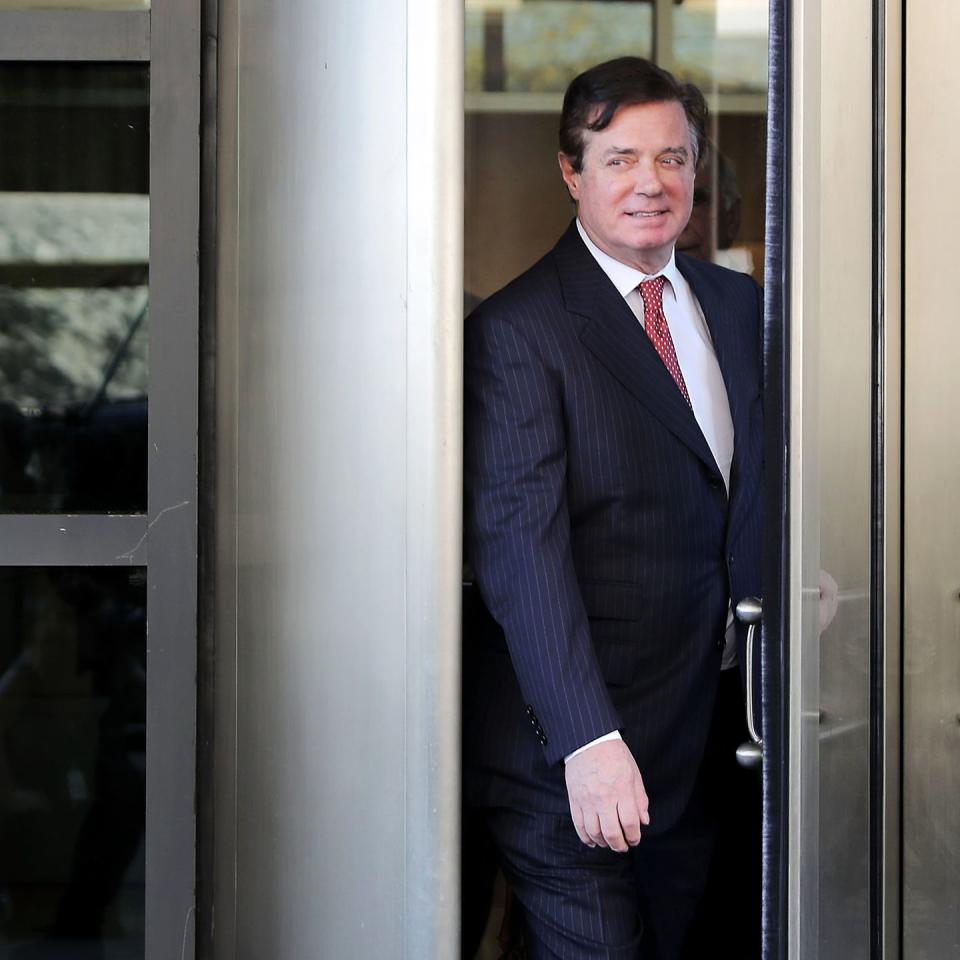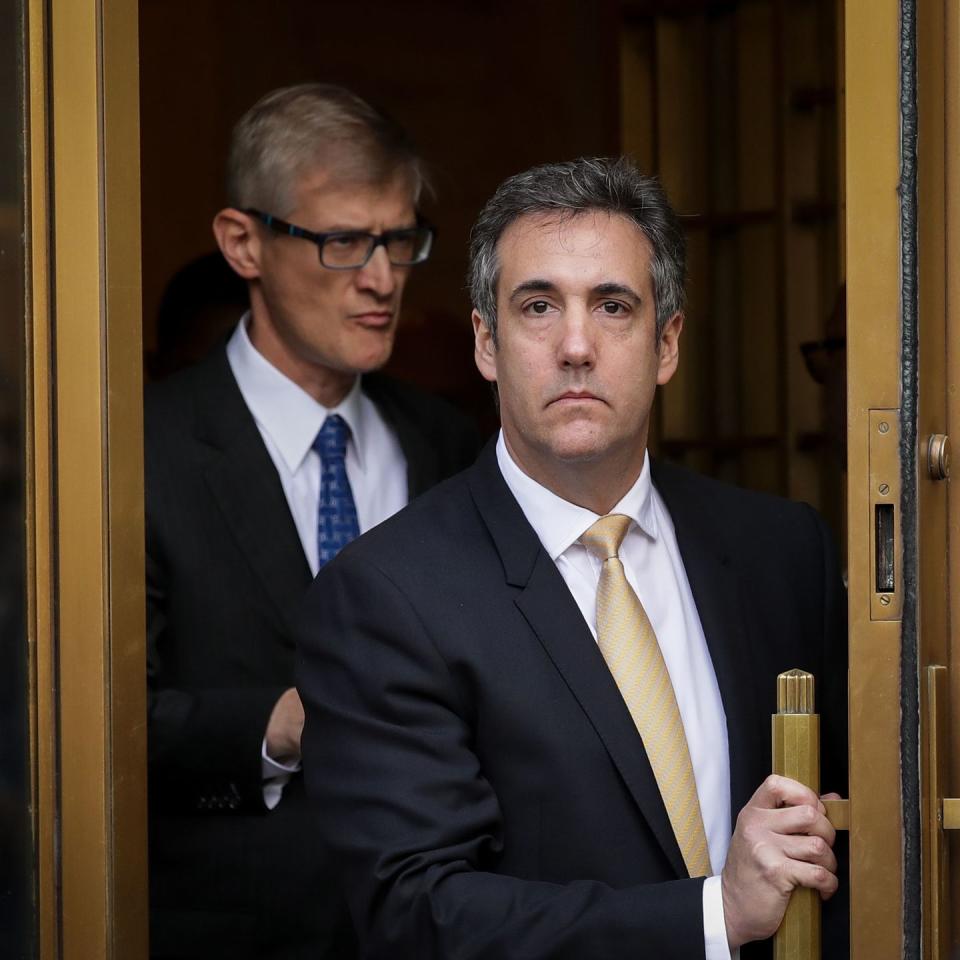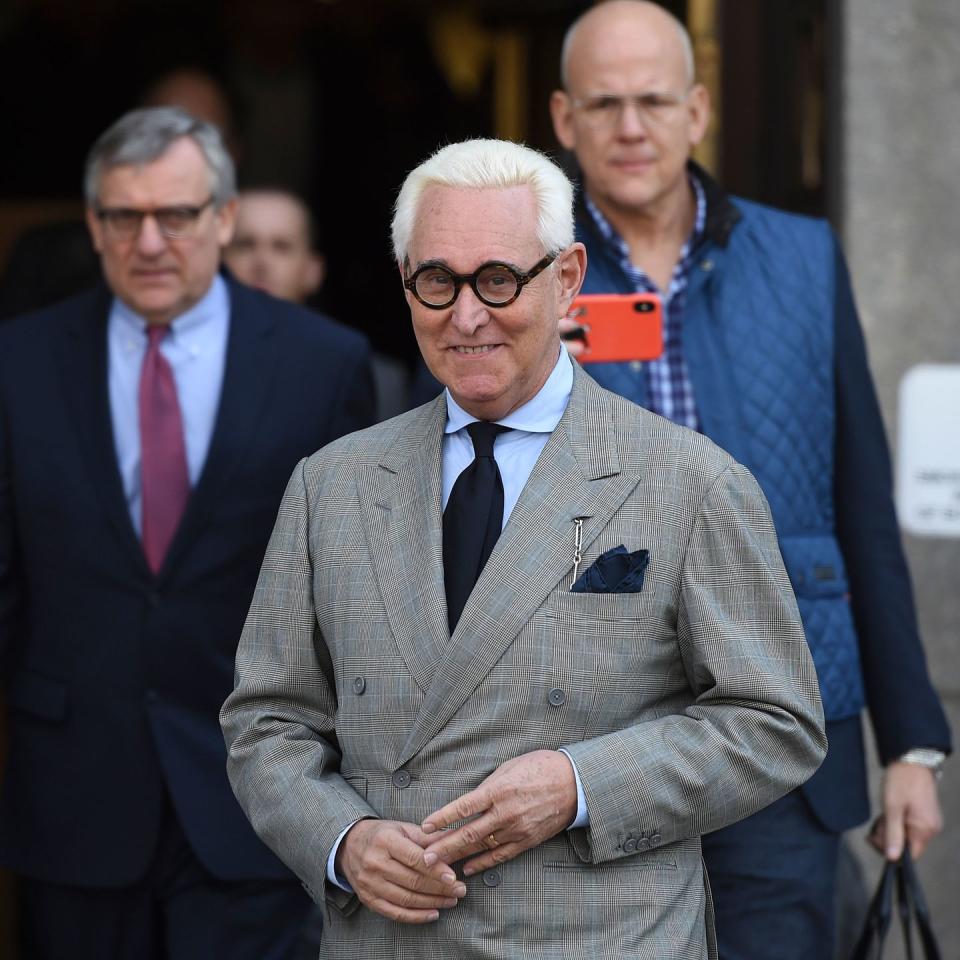The Mueller Report is the Trump Book to Beat

Robert Mueller’s Report On The Investigation Into Russian Interference In The 2016 Presidential Election is best read as a work of literary nonfiction. While it lacks the frisson of the Starr Report and the attention to storytelling of the 9/11 Report, it is by far the most historically significant work of the Trump era. The second volume of the report, which documents Trump’s obstruction of the investigation, is deservedly receiving an enormous amount of attention because it raises questions about whether Trump committed crimes. But here I’ll focus on Volume I, which will likely stand as the most comprehensive account of what the Russians did in 2016-the closest thing we’ll get to a 9/11 Commission-style report of an attack on our country that our current president and his top aides, as Mueller shows, abetted even if they didn’t collude.
The Mueller report’s attention to detail, vacuumed out of iPhones and cloud accounts and hundreds of interviews conducted under threat of criminal charges by dozens of prosecutors and FBI agents, is extraordinary. It has become a cliche to say that Mueller knows all, but at least on this topic, he really does. He knew from cell phone location data that Erik Prince was in Trump Tower at the moment he opened a specific email. He knew Paul Manafort was lying about his relationship with a Russian asset because he’d already accessed the person’s electronic communications. He knew that on the evening of Trump’s victory a wealthy Russian, Kirill Dmitriev, who was trying to make inroads with the Trump administration, received a message from someone that said simply, “Putin has won.”
Unlike Michael Wolff’s Fire and Fury, which largely channelled the insights of Steve Bannon, Mueller’s definitive account of the 2016 Russian interference campaign does not overly rely on access to a few sources. Unlike Bob Woodward’s Fear, everyone in Mueller’s magnum opus is on the record. Unlike the daily news coverage that documented many of the same events covered by Mueller, the narrator here guides the reader through the thicket of lies told by Trump aides by addressing a source’s reliability upfront.
For instance Manafort, the former campaign chairman and senior strategist to Trump, who in Mueller’s hands manages to come off as even more of a cartoon villain than he did during his criminal trial, is such a grand liar that Mueller developed a guide for readers to understand how information from Manfort is used in the report. Manafort’s versions of events are only allowed when “sufficiently corroborated,” when his lies themselves are crucial evidence, or in a few cases when Mueller couldn’t get to the bottom of something but deemed it worthwhile to convey Manfort’s side of the story.

This sort of exacting attention to source credibility makes the entire work feel definitive. Mueller is never satisfied with the kind of he said/she said accounts that by necessity we journalists often have to resort to. (We can’t subpoena anyone!) In most cases he settles factual disputes between conflicting sources. (This has a devastating effect in Volume II, which documents Trump’s efforts to obstruct the investigation, when Trump repeatedly contradicts James Comey’s version of events, only to be swatted down as a liar by Mueller, who cites corroborating evidence from notes and other witnesses to back up Comey. Now wonder in a Friday morning tweet attacking the "Crazy Mueller Report," Trump advised followers, "Watch out for people that take so-called 'notes.'")
In the rare instances when Mueller couldn’t referee competing versions of the truth he lets the reader know. One example that stood out: unless it is in a redacted portion, Mueller did not establish for certain that Julian Assange knew that Guccifer 2.0 and DCLeaks, the two entities that sent him thousands of stolen Democratic emails, were internet personas created by the Russian intelligence unit that hacked data from the DNC and John Podesta, Hillary Clinton’s campaign chairman.

The characters presented in the Mueller report are familiar but they are more vivid than ever, not because of any writerly flair-the prose is wooden-but because of Mueller’s attention to detail. Many of the ridiculous early Trumpa-era personalities get their own section in Mueller’s account of the Russian interference campaign, and they often come across as too bumbling or inept to collude with a brunch menu, let alone Russian intelligence.
Google is a constant challenge for them. When George Papadopoulos meets one Russian contact, Olga Polonskaya, in London on March 24, 2016, he erroneously believes that she is Putin’s daughter. The degree to which Mueller shows receipts about even minor facts like this is extraordinary. He footnotes Papadopoulos’s mistake with a reference to the young man’s internet search history “revealing late-morning and early-afternoon searches on March 24, 2016 for ‘Putin’s niece,’ ‘olga putin,’ and ‘russian president niece olga,’ among other terms.” (Always erase your search history before meeting possible Russian spies!)
Michael Cohen was similarly flummoxed by Google. Mueller documents the long and detailed efforts that Cohen undertook on behalf of Trump to build a Trump Tower Moscow, a project that continued through the middle of the 2016 campaign, despite Cohen and Trump’s repeated denials that Trump had any financial interests in Russia. The Russian side of the deal went through different permutations and at one point Ivanka Trump connected Cohen with Dmitry Klokov, a former Russian official who offered Cohen assistance on both the building project and Trump’s presidential campaign-“political synergy,” he called it-and dangled a meeting with Putin. Cohen’s due diligence process to vet Klokov consisted of googling his name. He came to believe--erroneously--that Klokov was a former Russian Olympic weightlifter. They communicated by email and over the phone for two days and Cohen never realized Klokov was actually someone else.
As late as last summer, when he was being interviewed by Mueller’s team, Cohen was still talking about his weightlifter contact in Russian. “During his interviews with the Office, Cohen still appeared to believe that the Klokov he spoke with was that Olympian,” Mueller notes in a deadpan style he seems to reserve for these comical moments. ”The investigation, however, established that the email address used to communicate with Cohen belongs to a different Dmitry Klokov.”
Properly communicating with Russians was a constant problem for Cohen. When he tried to reinvigorate the stalled Moscow Tower project in December 2015 he reached out to Putin’s press secretary, Dmitry Peskov, but initially used an email address that was off by one letter.
Manafort may be the exception to this kind of ineptitude. He comes across as a Soprano-like criminal who has spent so much of his recent years in Ukraine electing politicians and then cashing in on access that he thought nothing of trying the same grift with Trump. The twist is that he was in debt to a Russian oligarch, Oleg Deripaska. and crafted a role for himself in Trump’s orbit that was designed to appease Deripaska. Mueller reports that Manafort repeatedly sent internal Trump campaign polling to his old business partner, Konstantin Kilimnik, who, we are informed, the FBI ”assesses” has ties to Russian intelligence. Kilimnik’s ties to Russia were sufficiently well-known that Manafort’s longtime business partner, Rick Gates, who was also the deputy campaign chairman for Trump, once joked that Kilimnik was “going to meet his Russian handler.” Manafort regularly followed up with emails to ascertain from Kilimnik as to whether Deripaska, with whom Kilimnik allegedly shared the polling data, was sufficiently impressed with Manafort’s new role to forget about all that money he owed him.

Manafort’s master plan was to elect Trump and reunite with a more forgiving Deripaska so they could both cash in on access to the White House. So what if one of the strings attached was helping Putin take full control of eastern Ukraine through a new puppet government endorsed by Trump and run by Manafort’s old client, Viktor Yanukovych? (Yes, this is all in the report.) Still Mueller found no evidence that Manafort had any connection to Russia’s election-interference efforts.
One of the most interesting new characters uncovered by Mueller is Petr Aven, a bonafide Russian oligarch. After pages and pages of only dimly seeing the Russian side of the story, Aven’s emergence on page 146, after Trump has been elected with Putin’s help, is a reader delight. By that point in the narrative one of the few clear weaknesses of the investigation is Mueller’s seeming inability to have penetrated Putin’s small circle. And then out of nowhere Mueller casually pops this surprise:
“As Russian officials in the United States reached out to the President-Elect and his team, a number of Russian individuals working in the private sector began their own efforts to make contact. Petr Aven, a Russian national who heads Alfa-Bank, Russia’s largest commercial bank, described to the Office interactions with Putin during this time period that might account for the flurry of Russian activity. Aven told the Office that he is one of approximately 50 wealthy Russian businessmen who regularly meet with Putin in the Kremlin; these 50 men are often referred to as ‘oligarchs.’”
What?! Mueller got one of Putin’s oligarchs to spill some tea on what life as an oligarch is like when your boss, the murdering tyrant of Russia, is trying to influence the American President he just helped elect? Why, yes, he did.
Aven does not disappoint. We learn through him that the oligarchs meet quarterly and that in December 2016, Putin hosted an “all-hands” oligarch meeting-yes, that’s apparently a real thing-to warn Aven and his colleagues that the Obama administration would retaliate for the interference campaign with new sanctions and that the Oligarchs should protect themselves by reaching out to Trump world. The diktat helps explain a renewed offensive from various Russian businessmen to penetrate the Trump world after his victory, all of which is exhaustively detailed by Mueller.
Aven also makes it clear that the American media’s view of Putin’s capabilities can be exaggerated. Putin, far from having unfettered access to Trump, found it difficult to know who to talk to in Trump’s world. Just passing on a congratulatory message was stymied by poor lines of communication. Hope Hicks, Trump’s top communications aide got a message from the Russian embassy when Trump won, but she was unsure it was legit, so she forwarded the email to Kushner. “Can you look into this?” she wrote. ”Don’t want to get duped but don’t want to blow off Putin!"
Sadly, the Aven character fades from the drama after his Q1 2017 oligarch meeting, though not before delivering a succinct view of how concerned Putin’s orbit was about the Russia investigation. Aven told Mueller’s team that at that early 2017 oligarch confab he informed Putin’s chief of staff that he was talking to the FBI about his attempts to create a backchannel to the new Trump administration. “According to Aven,” Mueller writes, ”the official showed no emotion in response to this report and did not appear to care.”

One of the strengths of the report is Mueller’s ability to distinguish between potentially troubling episodes-he seems highly alarmed by Manafort’s links to Ukraine and Russia-and those that may have looked awful but have innocent explanations. Kushner, who has often been caught up in the media’s Russian collusion drama, comes off as more naive than sinister in his dealings with the Russian Ambassador, Sergey Kislyak. Mueller dryly retells the story of Kushner suggesting that Kushner and Kislyak use the Russian embassy to securely communicate with some generals that the ambassador suggested could brief him on Syria, but there’s no inference that Kushner was plotting something nefarious. However the Kushner-Kislyak bromance does take a sad turn when Kushner is informed that there’s a more important Russian official with closer ties to Putin who he should be communicating with and Kushner stops returning Kislyak’s messages. (Even sadder: he makes his assistant meet with the still-persistent ambassador.)
Mueller also didn’t find anything particularly alarming about Sessions meeting with Kislyak in his Senate office and did not think Sessions perjured himself when he failed to disclose the meeting in his Senate confirmation hearing. Mueller confirms that a Trump staffer did indeed alter the language of the Republican Party platform to make it less hostile to Russia, but he didn’t find a Russian plot behind the change.
Mueller considered charging Don Jr. and others with a campaign finance violation for agreeing to accept opposition research from a Russian contact but found--wisely it seems--that the law against campaigns accepting something of value from a foreigner was too murky to apply to the unusual case. (Congress would be wise to step in and craft some tighter rules against foreign assistance.)
Mueller also clears up some of the conspiracy theories. The description of Carter Page’s links to Russian intelligence and his actions in 2016 offer plenty of fodder for defending the surveillance-“spying” in Attorney General Barr’s words-that was conducted against him by the government when fears about Russian meddling and the Trump campaign were at their height. Though it has been often disputed by some critics of the investigation, Mueller documents carefully that the probe was indeed opened after a foreign government tipped off the FBI that Papadopoulos had claimed to know about the Russian email hacking in advance, and not because of the Steele dossier (which gets very little attention in the report). Mueller even chases down and refutes a rumor that Trump may have been at a chess tournament in New York to secretly meet with a Russian businessman in late 2016.

The one mystery not resolved by the redacted version of the report is the full extent of Roger Stone’s dealings with Wikileaks. Most of the Stone material is blacked out because his trial hasn’t started yet and the Justice Department determined the information could harm the case. One section that covers declinations-decisions not to indict-tantalizingly appears to be about Stone and collusion. So we will have to wait a little longer for the entire Trump-Russia story to emerge.
But by the end of the first volume I was exhausted by the amount of detail and the comprehensiveness of the investigation. I also realized that after I finished it that we are right back where we started: Putin interfered in a dramatic fashion in the 2016 election and Trump encouraged it, benefited from it, and then tried to cover it up, even though he wasn’t a criminal partner in the conspiracy. We got attacked in 2016, and the real crime is what was legal: the person who got elected just didn’t care.
('You Might Also Like',)

